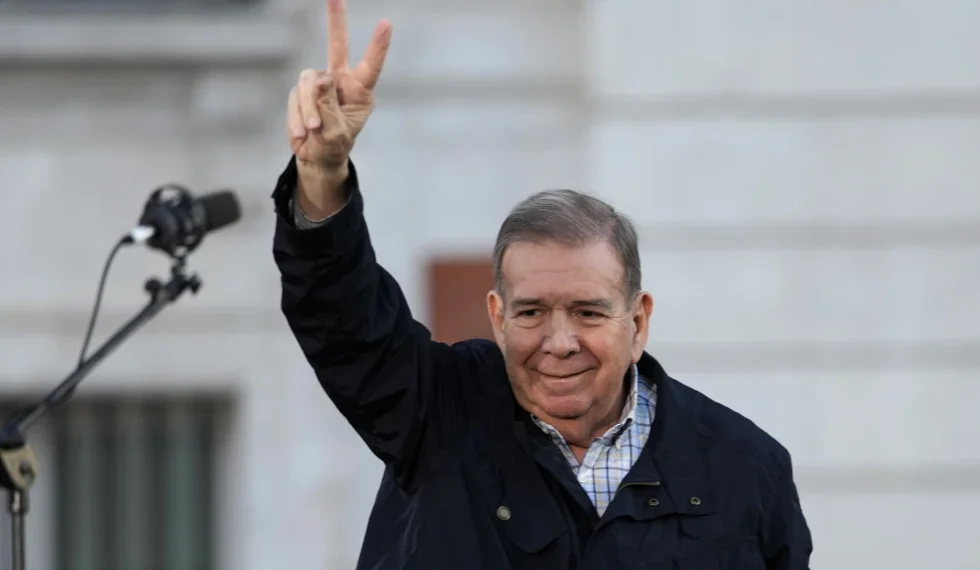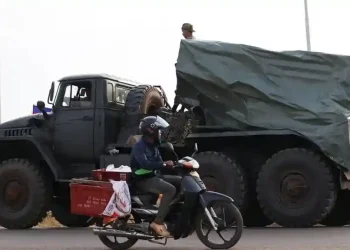U.S. Recognizes Venezuelan Opposition Leader as President-Elect Months After Disputed Election
CARACAS, Venezuela (AP) — The U.S. government officially recognized Venezuelan opposition candidate Edmundo González as the “president-elect” of Venezuela on Tuesday, months after President Nicolás Maduro claimed victory in the disputed July election.
U.S. Secretary of State Antony Blinken made the announcement on X (formerly Twitter), asserting that González had won the election and demanding “respect for the will” of Venezuelan voters.
Previously, the Biden administration had acknowledged that González received the most votes in the July 28 election but had refrained from formally recognizing him as president-elect.
The National Electoral Council of Venezuela, which is closely aligned with Maduro, declared Maduro the winner just hours after polls closed. However, unlike previous elections, the council did not provide detailed vote counts. In response, the opposition coalition gathered data from 80% of the country’s electronic voting machines and released the information online. González and opposition leader María Corina Machado argued that the voting records indicated González won with double the votes of Maduro.
“We deeply appreciate the recognition of the sovereign will of all Venezuelans,” González posted on X shortly after Blinken’s statement. “This gesture honors the desire for change of our people and the civic feat we accomplished together on July 28.”
In September, González went into exile in Spain after a warrant was issued for his arrest in connection with the publication of the vote tally sheets.
Venezuela’s Foreign Minister, Yván Gil, responded to Blinken’s statement with personal attacks, criticizing the U.S. Secretary of State. “In the last days of his government, he should reflect on his failures, abandon imperial and colonial complexes, and write the memoirs of how the Bolivarian Revolution made him bite the dust of defeat,” Gil said, without addressing the election results.
Maduro and Venezuela’s electoral authorities have rejected calls from the U.S., the European Union, Colombia, Brazil, and other nations to provide detailed voting records to substantiate his reelection. Following criticism of the lack of transparency, Maduro asked Venezuela’s Supreme Tribunal of Justice—whose members are aligned with his government—to audit the results. The court upheld his victory.
Experts from the United Nations and the U.S.-based Carter Center, which observed the election at Maduro’s invitation, expressed doubts about the credibility of the announced results. However, the U.N. experts did not validate the opposition’s claim of victory, though they confirmed that the voting records published by the opposition appeared to retain the original security features.
Earlier this week, Colombia’s President Gustavo Petro, who has maintained friendly relations with Maduro, reversed his support for the July elections. In an interview with Globo News, Petro called the elections a “mistake,” stating that they were not “free.” Petro had initially supported the elections but later changed his stance. His office did not provide further details on his reasons for the shift.
Petro, Brazilian President Luiz Inácio Lula da Silva, and former Mexican President Andrés Manuel López Obrador—three leftist leaders sympathetic to Maduro—had attempted to mediate peace as the election results were contested, but their efforts failed.
Venezuela’s next presidential term begins on January 10. Maduro has already been invited to a swearing-in ceremony by the ruling party-controlled National Assembly.
This article was rewritten by JournosNews.com based on verified reporting from trusted sources. The content has been independently reviewed, fact-checked, and edited for accuracy, neutrality, tone, and global readability in accordance with Google News and AdSense standards.
All opinions, quotes, or statements from contributors, experts, or sourced organizations do not necessarily reflect the views of JournosNews.com. JournosNews.com maintains full editorial independence from any external funders, sponsors, or organizations.
Stay informed with JournosNews.com — your trusted source for verified global reporting and in-depth analysis. Follow us on Google News, BlueSky, and X for real-time updates.














